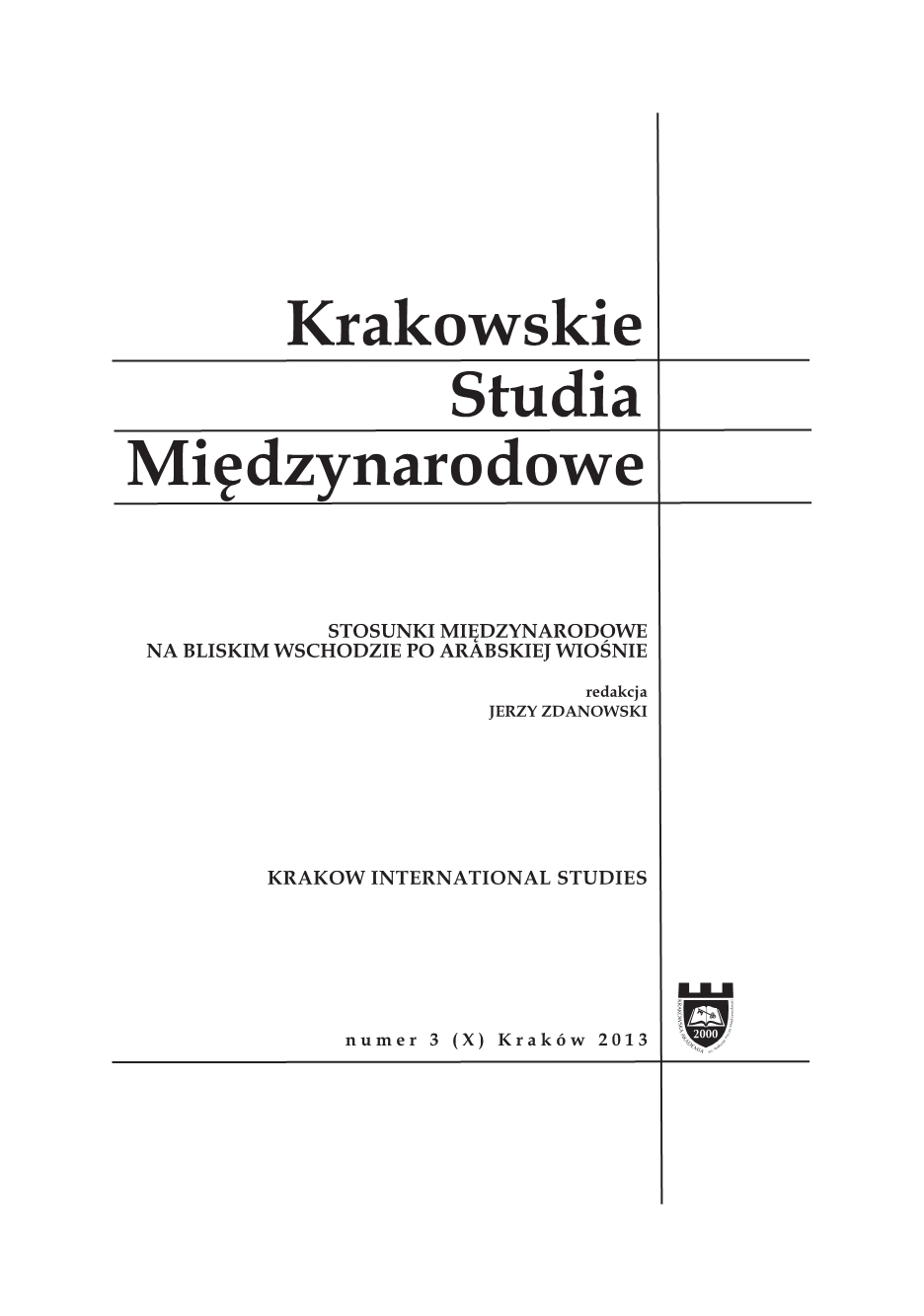Znaczenie Arabskiej Wiosny
The Importance of the Arab Spring
Author(s): Jerzy ZdanowskiSubject(s): Political history, Islam studies, International relations/trade, Present Times (2010 - today)
Published by: Oficyna Wydawnicza AFM Uniwersytetu Andrzeja Frycza Modrzewskiego w Krakowie
Keywords: Arab Spring; Middle East; authoritarianism; Islamism; new subjectivity; new international order;
Summary/Abstract: At the turn of 2011, turbulent events occurred in the Middle East that have become known all over the world as the ‘Arab Spring’. Initially, these protests were a form of civil disobedience. Later, the situation developed in several directions. In Jordan, Algeria, Morocco, Saudi Arabia, Kuwait, the United Arab Emirates, Mauritania, Sudan and Oman, the authorities managed to convince the public that they would meet their needs and introduce new reforms. The authorities in Syria, Libya, Yemen and Bahrain took the severest positions. In Tunisia and Egypt free elections were conducted, and these countries have started to build a democratic system. This experiment was interrupted in Egypt on July 3, 2013 by the intervention of the army. In the light of these events, can one assume that the Arab Spring is a closed chapter in the history of the Middle East, and that the hope for democracy in the countries of the region have been buried forever? This article refers to the sources of the ‘Arab Spring’ and demonstrates its importance for the history of the region.
Journal: Krakowskie Studia Międzynarodowe
- Issue Year: X/2013
- Issue No: 3
- Page Range: 13-33
- Page Count: 21
- Language: Polish

